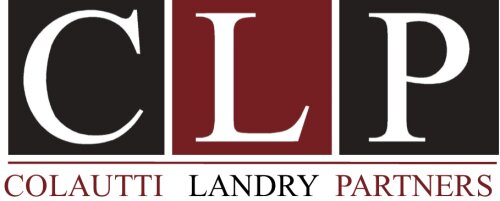Best Commercial Real Estate Lawyers in Windsor
Share your needs with us, get contacted by law firms.
Free. Takes 2 min.
Free Guide to Hiring a Real Estate Lawyer
List of the best lawyers in Windsor, Canada
About Commercial Real Estate Law in Windsor, Canada
Commercial real estate law in Windsor, Canada, governs the purchase, sale, leasing, and development of properties used for business purposes. This field of law is multifaceted, covering everything from office buildings and retail spaces to warehouses and industrial sites. Windsor’s position as a border city adjacent to Detroit, USA, brings additional considerations such as cross-border transactions and international investment. Commercial real estate law in this area addresses zoning regulations, property taxes, environmental compliance, financing, and landlord-tenant relationships. Whether you are a business owner, investor, developer, or landlord, understanding and navigating these laws is essential to protecting your interests and ensuring every transaction is legally sound.
Why You May Need a Lawyer
The commercial real estate landscape in Windsor can be complex and fraught with potential legal pitfalls. Here are some common situations where legal advice is crucial:
- Purchasing or Selling Property: Lawyers verify title, draft agreements, perform due diligence, and ensure all conditions and legal requirements are met.
- Leasing Agreements: Commercial leases are intricate documents, often more complex than residential leases. Legal review guards against unfair terms and ensures compliance with local regulations.
- Development and Land Use: Projects involving new construction or redevelopment necessitate legal help with zoning, permits, and addressing environmental concerns.
- Financing: Understanding the terms and implications of commercial mortgages or loans is key, as is correctly registering security interests.
- Dispute Resolution: Lawyers help resolve disputes between landlords and tenants, co-owners, or concerning contract breaches.
- Risk Management: Legal counsel helps identify and mitigate potential liabilities, and ensures ongoing regulatory compliance.
Local Laws Overview
Windsor falls under the jurisdiction of Ontario provincial law, with additional municipal by-laws and, in some cases, federal considerations for cross-border or international dealings. Key aspects of local laws relevant to commercial real estate include:
- Zoning By-Laws: Windsor has specific rules about which types of businesses or developments are permitted in various areas, managed through zoning designations and permits.
- Property Taxes: Commercial properties are taxed differently from residential properties, with rates and assessments set by the City of Windsor. Property reassessment and appeals are also governed by local rules.
- Land Transfer Tax: Purchasers generally pay a land transfer tax upon property acquisition, in addition to the Ontario provincial land transfer tax.
- Lease Regulations: While commercial leases are generally governed by contract law, there are some provincial and municipal requirements, especially for accessibility, safety, and environmental standards.
- Development and Building Permits: All new construction or significant alterations require permits from the City of Windsor’s Building Division, which enforces Ontario’s Building Code and local standards.
- Environmental Compliance: Due diligence for potential contamination or environmental risks is crucial, as laws require property owners to address any hazards.
- Heritage Designation: Some properties in Windsor are protected for their historic value, adding another layer of regulation if alterations or redevelopment are planned.
Frequently Asked Questions
What is the difference between commercial and residential real estate in Windsor?
Commercial real estate refers to properties used for business activities, such as retail, office, industrial, or multi-family (apartment buildings), whereas residential real estate covers properties intended for personal living. The rules, taxes, and legal considerations often differ significantly.
Do I need a lawyer to buy or lease commercial property?
While not legally required, having a lawyer is strongly recommended. Commercial transactions are complex, and legal representation helps prevent costly mistakes and ensures compliance with all regulations.
What are common pitfalls when signing a commercial lease?
Common issues include unclear terms regarding maintenance, repair obligations, rent increases, renewal options, subletting, and early termination clauses. A lawyer can help identify and negotiate these terms.
How are commercial property taxes assessed in Windsor?
The City of Windsor assesses commercial property taxes based on the property’s current value and the applicable rate for its classification. Owners can appeal assessments if they believe an error has occurred.
What permits are required to develop or renovate a commercial property?
You typically need building permits from the City of Windsor for new construction, major renovations, or changes in use. Depending on the project, additional zoning, signage, or environmental approvals may be needed.
Are there limits on foreign ownership of commercial real estate in Windsor?
While there are fewer restrictions on non-residents owning commercial property compared to residential property, some reporting requirements and taxes may apply. Large transactions may also involve federal review for national security or investment policies.
How does environmental law affect commercial real estate?
Buyers and sellers must ensure properties meet environmental safety standards. Environmental site assessments may be needed, and liability for contamination can fall on current or past owners.
What happens if a dispute arises over a commercial lease?
Disputes may be resolved through negotiation, mediation, arbitration, or litigation. Legal advice is beneficial in determining the best approach and protecting your interests.
Can a landlord evict a commercial tenant, and what is the process?
Eviction processes for commercial tenants differ from residential ones and are less regulated. However, written lease terms and Ontario law regarding notice and process must be followed, making legal guidance essential.
How long does it take to close a commercial real estate transaction?
The timeline depends on the complexity of the deal, due diligence requirements, and financing arrangements. Transactions can range from several weeks to several months.
Additional Resources
Several organizations and government bodies can assist individuals seeking information or legal help in commercial real estate:
- City of Windsor Building Division: For permits, zoning, and development inquiries.
- Ontario Ministry of Municipal Affairs and Housing: For provincial regulations and guidance on land use and development.
- Ontario Land Registry Office: For property title searches and registration information.
- Ontario Real Estate Association (OREA): For general educational resources on real estate matters.
- Law Society of Ontario: For finding qualified real estate lawyers.
- Windsor-Essex Economic Development Corporation: For investment and development resources.
- Canadian Bar Association - Real Property Section: For legal information and referral services.
Next Steps
If you require assistance with a commercial real estate transaction or issue in Windsor, consider the following steps:
- Define Your Needs: Clearly identify your goals, concerns, and what type of property or transaction you are considering.
- Gather Documentation: Collect all relevant paperwork, including agreements, leases, permits, title documents, and correspondence.
- Consult with a Qualified Lawyer: Seek out a real estate lawyer licensed in Ontario, preferably with experience in Windsor’s commercial market. The Law Society of Ontario provides a lawyer directory and referral service.
- Ask Questions: Don’t hesitate to discuss processes, fees, timelines, and potential risks with your legal counsel.
- Stay Informed: Keep up to date with local regulations and trends that may impact your property or business interests.
- Follow Legal Advice: Ensure all of your actions are in line with your lawyer’s recommendations to avoid legal complications down the road.
Lawzana helps you find the best lawyers and law firms in Windsor through a curated and pre-screened list of qualified legal professionals. Our platform offers rankings and detailed profiles of attorneys and law firms, allowing you to compare based on practice areas, including Commercial Real Estate, experience, and client feedback.
Each profile includes a description of the firm's areas of practice, client reviews, team members and partners, year of establishment, spoken languages, office locations, contact information, social media presence, and any published articles or resources. Most firms on our platform speak English and are experienced in both local and international legal matters.
Get a quote from top-rated law firms in Windsor, Canada — quickly, securely, and without unnecessary hassle.
Disclaimer:
The information provided on this page is for general informational purposes only and does not constitute legal advice. While we strive to ensure the accuracy and relevance of the content, legal information may change over time, and interpretations of the law can vary. You should always consult with a qualified legal professional for advice specific to your situation.
We disclaim all liability for actions taken or not taken based on the content of this page. If you believe any information is incorrect or outdated, please contact us, and we will review and update it where appropriate.












